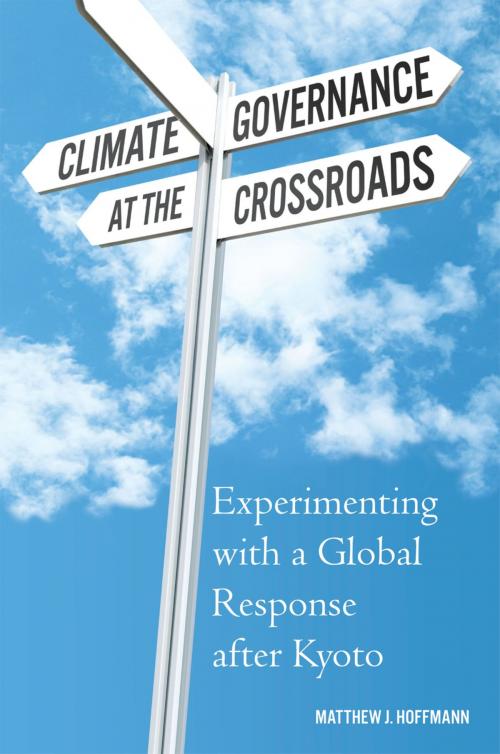Climate Governance at the Crossroads
Experimenting with a Global Response after Kyoto
Nonfiction, Science & Nature, Science, Biological Sciences, Environmental Science, Social & Cultural Studies, Political Science, Government, Public Policy, International, International Relations| Author: | Matthew J Hoffmann | ISBN: | 9780190452896 |
| Publisher: | Oxford University Press | Publication: | March 16, 2011 |
| Imprint: | Oxford University Press | Language: | English |
| Author: | Matthew J Hoffmann |
| ISBN: | 9780190452896 |
| Publisher: | Oxford University Press |
| Publication: | March 16, 2011 |
| Imprint: | Oxford University Press |
| Language: | English |
The global response to climate change has reached a critical juncture. Since the 1992 signing of the United Nations Framework Convention on Climate Change, the nations of the world have attempted to address climate change through large-scale multilateral treaty-making. These efforts have been heroic, but disappointing. As evidence for the quickening pace of climate change mounts, the treaty-making process has sputtered, and many are now skeptical about the prospect of an effective global response. Yet global treaty-making is not the only way that climate change can be addressed or, indeed, is being addressed. In the last decade myriad initiatives have emerged across the globe independently from, or only loosely connected to, the "official" UN-sponsored negotiations and treaties. In the face of stalemate in the formal negotiations, the world is experimenting with alternate means of responding to climate change. Climate Governance at the Crossroads chronicles these innovations--how cities, provinces and states, citizen groups, and corporations around the globe are addressing the causes and symptoms of global warming. The center of gravity in the global response to climate change is shifting from the multilateral treaty-making process to the diverse activities found beyond the negotiating halls. These innovations are pushing the envelope of climate action and demonstrating what is possible, and they provide hope that the world will respond effectively to the climate crisis. In introducing climate governance "experiments" and examining the development and functioning of this new world of climate policy-making, this book provides an exciting new perspective on the politics of climate change and the means to understand and influence how the global response to climate change will unfold in the coming years.
The global response to climate change has reached a critical juncture. Since the 1992 signing of the United Nations Framework Convention on Climate Change, the nations of the world have attempted to address climate change through large-scale multilateral treaty-making. These efforts have been heroic, but disappointing. As evidence for the quickening pace of climate change mounts, the treaty-making process has sputtered, and many are now skeptical about the prospect of an effective global response. Yet global treaty-making is not the only way that climate change can be addressed or, indeed, is being addressed. In the last decade myriad initiatives have emerged across the globe independently from, or only loosely connected to, the "official" UN-sponsored negotiations and treaties. In the face of stalemate in the formal negotiations, the world is experimenting with alternate means of responding to climate change. Climate Governance at the Crossroads chronicles these innovations--how cities, provinces and states, citizen groups, and corporations around the globe are addressing the causes and symptoms of global warming. The center of gravity in the global response to climate change is shifting from the multilateral treaty-making process to the diverse activities found beyond the negotiating halls. These innovations are pushing the envelope of climate action and demonstrating what is possible, and they provide hope that the world will respond effectively to the climate crisis. In introducing climate governance "experiments" and examining the development and functioning of this new world of climate policy-making, this book provides an exciting new perspective on the politics of climate change and the means to understand and influence how the global response to climate change will unfold in the coming years.















